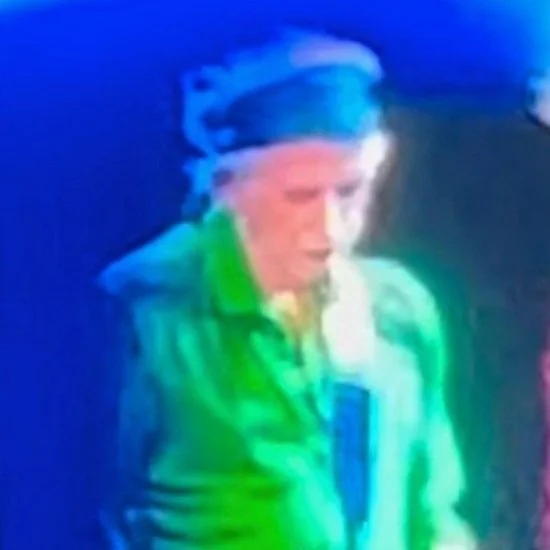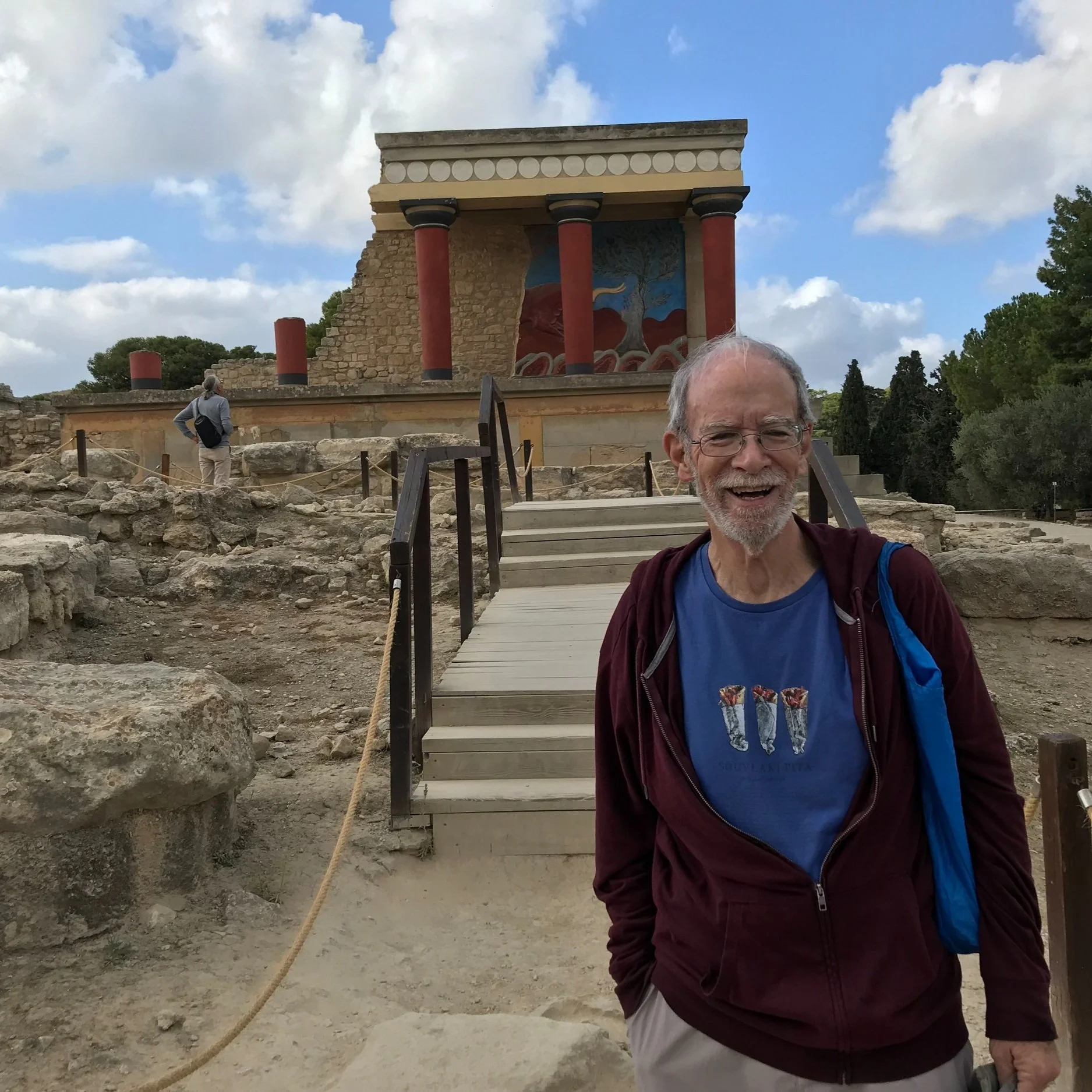A WAL-MART CHRISTMAS EVE
I finally made my choice between the several 20-items-or-less lines, calculating that the young, slender checker would be quicker than the older, weary looking woman running the register to her left. And, as usual, within seconds, Young-and-Slender stopped dead to call for a price check.
It was Christmas Eve day at Wal-Mart. The parallel checkout lines were close together, and several people had already filled in behind me. Turning my cart around would be awkward.
So, summoning some gratefully arrived seasonal good cheer and patience, I began scanning various magazine covers featuring apparent celebrities I’d never heard of and Taylor Swift, of whom I just had—and impressively so—in a segment on Sixty Minutes; quite a remarkable young woman.
As expected, nobody responded to Young-and-Slender’s price check request, and while our line remained December frozen, customers to our right and left crept forward at mission food line pace, but moving nonetheless.
As I, in my way, contemplated the nature of things—holiday traditions and sentiment, celebrity culture, mass shootings, games of fiscal-cliff chicken, Wal-Mart seediness (as well as my own), and the ineffable Mystery from which this and the ten thousand things emanate … well, not exactly emanate … but…oh well, it is ineffable, after all, a male voice behind me said:
“Stay over there on that side. I’m over here.” …
Have yourself a techie little christmas
Twas the night before Christmas, when
all through the town
TikTok was quiet even Bluesky was down.
Stockings were hung by the plasma display
In hopes Elon Musk wouldn’t
take them away.
The children were nestled, all
snug and secure,
While Big Data strip-mined
their free FICO score. …
Heather Cox Richardson on: The Trump and Musk Show
We are with one of our children on the island of St. Barths, where I should be thinking about Emerson’s wonderful line about warm weather: "Man in summer is man intensated.”
I should be noting the casualness with which women are excluded from such aperçus. I should be trying to figure out why spellcheck doesn’t recognize “insensated.” And I should be deciding if I ought to aim for “insensated,” during this Caribbean idyll or whether merely “laid back” will do.
Instead, I’m noting that most of the tourists here are younger and richer than I. And I’m thinking (our fate for the next four years?) about Trump/Musk.
The latter—the thinking not the election—is in large part Heather Cox Richardson’s fault.
I know many of you subscribe to her letters and Substack. (If not, that can be rectified (for free) here. We try to keep excerpts from articles that have appeared elsewhere to a minimum. And she is not even a member of our age cohort.
But she can make our situation—our ridiculous and frightening post-election situation—so damn clear. . . .
Health Care Doesn’t have to be this way
There’s been a lot of conversation recently, in the wake of the murder of the United Healthcare CEO, about the failures of the American healthcare system, and particularly the inadequacies of American health insurance.
For some, the alleged murderer became a kind of folk hero, a Robin Hood pushed to the limit, an avenging angel fighting health insurance’s myriad injustices. For many, it simply uncorked a deep well of pent-up consumer frustration. For me, it provided an occasion not only to think about how much better health care in America could be and should be, but how different it was when we lived in France. . . .
“100 Most Iconic Technologies”
No this is not another WritingAboutOurGeneration.com list. For one thing, we are not much enamored with the word “iconic.”
This list was conjured up—with the help, apparently, of dozens of experts—by the New York Times’ consistently witty, wise and enlightening technology podcast: Hard Fork, hosted by Kevin Roose and Casey Newton.
I am quite interested in the history of technology. I once contemplated a book on the subject: beginning with stone tools, agriculture and the wheel.
So I thought it might be interesting to share some thoughts on Hard Fork’s rankings—and maybe to get your thoughts. And at some point this website may indeed have something of its own to say about the most important technological developments of our lifetimes.
What follows are the top 25 of Hard Fork’s “100 Most Iconic Technologies”—ever. And then my thoughts on their list . . .
Keith Abides
My friend and colleague Mitch and I used to play this awfully morbid game. We would try to figure out which celebrity death would make the front page of the New York Times, back when there was pretty much just the static, print version of the paper and not the endlessly mutating digital variety.
Whose death was important enough to qualify for the imprimatur of the nation’s most important news source? Who would make it above the fold, the top half of the paper, the death being considered major news, up there with earthquakes and wars and political shenanigans?
And whose death would instead be buried, so to speak, on page 26, along with all the other obits of minor novelists and respected but forgotten scientists and others who had one Warholian moment of fame?
I was just recently reminded of this morbid game when I came across the fact that Keith Richards—yes, that Keith Richards—has his 81st birthday this week. . . .
Sharing What We know
Seventy years ago this January, I walked into my first class, at elementary school, and had my first experience interacting with a teacher. Next month, I will greet students walking into my class, experiencing my first day teaching a class of my own.
A lot has happened between those two days.
Next month marks a memorable milestone for me. I will, for the first time, formally take on the title of “professor” and jump into a semester of teaching a graduate school class focusing on urban development. It’s a topic I have had directly in front of me for my entire career, as a practitioner.
But now I’ll be dealing with it in a teaching mode. …
The Emergency Room, But Not an Emergency
It’s the emergency room, but the situation does not feel all that scary.
My wife has been suffering with a respiratory something. Our “primary-care physician” wants to make sure it isn’t a bacterial something. If he were to do the blood test in his office, we would have to wait a few days for the lab to send the results. So, we head to the emergency room—at 9:30 a.m. It is on the other side of town.
I am not entirely a stranger to emergency rooms—having had a broken bone set or an unfamiliar symptom checked out upon occasion; having joined my aged mom there a few useless times after an overly jittery aide had called an ambulance.
This time in the ER my wife, despite her honest account of some very non-acute symptoms, is gifted, quickly, with a doctor, the blood work and a chest X-ray . (Friend Neil suggests that the surest way to get prompt service in an emergency room is to report “severe chest pains.”) . . .
One Year out
It’s been just about a year.
During the year, these last 12 months, I’ve traveled abroad and explored archeological ruins. I’ve run a 5K, hiked to the top of a (small) mountain and helped launch and kept functioning a new website (this one, in fact).
I’ve been interviewed on podcasts and written about no longer caring much about baseball. I’ve eaten at nice restaurants and some not so nice, where I couldn’t hear much of anything because the restaurant was so damn noisy. I’ve read some wonderful books and some not-so-memorable ones that, in fact, I can’t remember much about.
I’ve lived through a despairingly awful election and the despondency that came afterwards.
I’ve celebrated another birthday, another wedding anniversary, the birthdays of my wife and kids and various holidays. I’ve given thanks on Thanksgiving, really given thanks.
That is, all in all, a pretty ordinary year. Yet none of it was a given, because just about a year ago, I almost died. . . .
The Joy of Being Underparented
In a funny coincidence, a week after visiting my one-year-old grandniece, I read Darby Saxbe’s article “People Should Ignore Their Children More Often” in the New York Times.
I had spent the weekend watching my niece attend to her daughter’s every whimper. My niece was exhausted and stretched thin. I gently encouraged her to let the baby be for a bit—she’s perfectly safe in the 10-foot-by-10-foot playpen! But my niece wasn’t having any of that.
Saxbe’s article talks about how overwhelmed and stressed today’s parents are and makes the point that children in hunter-gatherer societies were probably often unsupervised, and when they were with their parents it was often when their parents were doing adult things—chores and such. Children in these communities got the gift of being bored, as well as the opportunity to observe adults doing grown-up tasks.
Saxbe suggests trying to approximate this approach to parenting and calls it “mindful underparenting.” . . .
“The Great Upheaval”
You might want to check out this from Axios’ Jim VandeHei and Mike Allen, who are experienced at this "spot-the-big-trends" big think. It includes comments from former Google chair Eric Schmidt and the usually wise, Ian Bremmer.
Governance, media, business and global geopolitics are all being reordered at breakneck speed — all simultaneously.
It's the Great Upheaval, Jim VandeHei and Mike Allen write in a "Behind the Curtain" column.
Why it matters: We're witnessing more change ... across more parts of life ... at more speed ... than ever before. . . .
Gobbled Gospel
“In wildness is the preservation of the world” — H.D. Thoreau
THERE, LOOK! ...…
Two days before Thanksgiving, marching along the residential sidewalk, a troop of wild turkeys, their dusky browns and grays merging with Autumn’s smudged palette. Heads down, one fowl in lead, two following abreast, then three, then three more, with one trailing—moving without pause or hitch down the sidewalk, their purpose known only to guiding Nature. Perhaps some biological imperative version of a promised land.
Seeing that humble, determined band yanks me from my Slough of Despond—that ever engulfing, oozing swamp of worldly pain, suffering, and death—political, geopolitical, economic, sociological, psychological, climatological—though at end, nearly all anthropological—the humanity authored catalogue of catastrophic present and impending calamities. . . .
It’s NOT my party!
Are you a party girl or nonparty? Were you a good girl or bad girl?
More than 50 years ago I was on the receiving end of those questions—so their recent revival is a punch to my gut. I could hardly believe what I have been reading about Trump’s nominee to lead the Department of Defense. As the CEO of several nonprofit veterans’ organizations, this guy apparently pursued female employees, informally dividing them into “party girls” and “not party girls,” while creating a hostile, predatory environment for women employees.
I thought as a society we had moved beyond such misogyny. I was wrong. . . .
Murders old and new
We came of age in—if you’ll forgive me—a “golden age” of murder stories.
And this past week a story that seems something of a throwback to that era—the shooting of a health-plan CEO in Manhattan—has captured oodles of attention. Mine included.
It is important to keep in mind, of course, the tragedy at the heart of this story—the cold-blooded murder of a father of two. But much about this story is indeed fascinating in a tabloid kind of way:
The apparently meticulous planning behind the shooting.
The murderer’s also seemingly well-planned escape—which included, in a sylvan touch, a bike ride through Central Park.
And the hint that the murder was somehow in retribution for sins of the organization the victim headed . . . .
A Tribute to My Midwife
Barb Nolfi agreed to be my midwife back in 1977. I wanted a home birth. Barb coached me and guided me through my pregnancy. She was deeply knowledgeable, lived close to the Earth, and approached my care with the wisdom of an all-knowing old soul.
After the baby was born, I asked Barb to use a satin ribbon that belonged to my husband’s grandmother to tie off the umbilical. She was hesitant but agreed. When it was all over, we fried up the placenta with lots of butter, onions and garlic. We believed in the health benefits and humans are the only mammal that does not eat its placenta, and it is the only meat that comes from birth and not from death.
Back then—living close to the land—we wanted to be true to our animal instincts and Barb Nolfi supported us in every way. She was one of us. . . .
“How Trump could bring on a second civil war”
Here—from Robert Reich’s Substack and so we are alert to all possibilities—is a possible worst-case scenario:
“Trump may force a second civil war on America with his plan to use the military to round up at least 11 million undocumented people inside the United States — even if it means breaking up families — send them to detention camps, and then deport them.
“As well as his plan to target his political enemies for prosecution — including Democrats, journalists, and other critics.
“What happens when we, especially those of us in blue states and cities, resist these authoritarian moves — as we must, as we have a moral duty to? . . .
The ten biggest changes in my life
After working on our story about The 10 Biggest Changes in the United States in Our Lifetimes, I began thinking more personally. So, here are the ten biggest changes in my life, in some kind of ascending (or maybe descending) order:
10. In first grade, I learned how to tie my shoelaces. This was years before Bass Weejun penny loafers became popular in my demographic and made my new skill irrelevant.
9. At the age of 10 or so, I went with my father to my first professional baseball game, I immediately dedicated my life to becoming the New York Yankees’—and major league baseball’s—first left-handed shortstop.
8. In late 1963, I heard and saw the Beatles, in a TV clip . . . .
On Putting Off
One would think
By the time one reaches one’s seventies
One would have learned
That succumbing to the temptation of procrastination
Ultimately leads only to vexation
Learned that
The time between now
And when it gets done,
If it even gets done, . . .
I beg your pardon?
If I had that kind of power, would I protect my son against dire consequences—even those of his own making? Of course I would.
It’s a hallmark of our generation—a willingness to shield our children from harm and smooth their path, get them into the best preschool, drive them to the field hockey select games, work with them on college applications, help them out with student loans, put them on our health insurance plans and cover the deposit for their first apartment.
Even when our children struggled, we’ve talked to the physics teacher about why a C+ rather than a B-, and we have interceded with the aggrieved neighbor about the bouncing basketball that destroyed a flower bed.
Or maybe our kid was caught with a joint in the school bathroom—maybe we laid down the law at home, but we talked to the principal and the school resource officer and worked to soften the penalties.
But none of us is the President of the United States. . . .
the 10 Biggest Changes in the United States in Our Lifetimes
We have lived and are still living through tumultuous times. The America we inhabit today in many ways bears scant resemblance to the post-World War II world into which we were born.
So much has changed that it’s hard to fully grasp, let alone place it in any kind of order. But we have had a go at it. Here is our list, in ascending order, of the ten biggest changes in American life our generation has seen.
What did we get wrong?





















